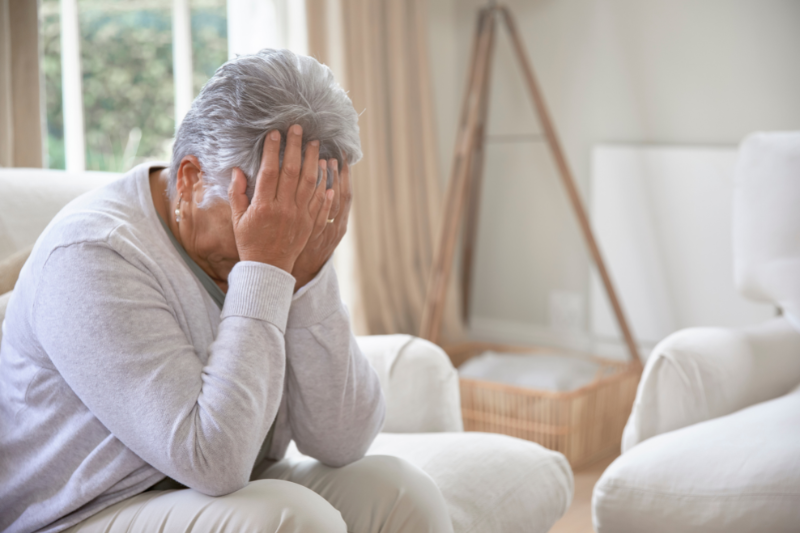Excessive fear of the dying process, also known as Thanatophobia is quite common in the elderly population. As we grow old, the thoughts of our death become more prevalent and can adversely affect our quality of life.
This article will discuss the symptoms and viable ways to cope with the stress of dying among the elders.
Symptoms of Thanatophobia
Usually, the most common presentation of this phobia includes the following symptoms:
- Intense fear of the dying process. We may keep thinking about how painful the death would be or how we would get through the death.
- Obsessive behavior towards health. For instance, we may check our blood pressure repetitively or search for abnormal moles. In severe cases, people may develop hypochondriasis (excessive worry about becoming sick).
- Excessive fears of isolation and leaving loved ones behind.
- Guilt or remorse about past negative events.
- Physical manifestations such as palpitations, dyspnea (shortness of breath), indigestion, dizziness, or sweating.
Factors that can make our Dying Difficult
Certain factors can make our dying process more difficult and less peaceful such as unresolved grief, past traumas, lack of loved ones beside us, the guilt of past events, introverted nature, and other similar factors.
Similarly, witnessing the death of a close relative or friend can also make us prone to this type of specific phobia.
How can we cope with the stress of dying?
The following measures can help us deal with fears of the dying process:
- Filling out Self-questionnaire
Sharing our thoughts in a self-questionnaire or personal diary can help us move forward from past traumas and painful memories. Unified Caring Association has shared a relevant questionnaire that can help us share our feelings and promote forgiveness.
- Relaxation Techniques
Relaxation techniques such as meditation, yoga, and breathing techniques can reduce the intensity of fears and physical symptoms associated with the phobia. The National Institute on Aging has also endorsed yoga techniques to preserve mental health in old age.
- Cognitive Behavioral Therapy
Cognitive Behavioral Therapy (CBT) or “Talk Therapy” provides an opportunity to share our thoughts with a mental health professional that can use different CBT techniques to help us over the fears of the dying process.
- Medical Treatments
Certain medications such as selective serotonin reuptake inhibitors (SSRIs) or tricyclic antidepressants can also be used to manage the symptoms of Thanatophobia. However, we must seek the physician’s advice before using them in old age.
Moreover, we should also keep ourselves socially connected with family members and peers of the same age so that we can share our inner thoughts and fears with them.
Take Home
Thanatophobia, or fear of the dying process, is prevalent among the elderly. It may present both with psychological and physiological manifestations such as intense fears or anxiety towards thoughts of dying, obsessive behavior about health, heart palpitations, increased sweating, dyspnea, and other symptoms. We can use relaxation techniques such as yoga and meditation to cope with these fears. Moreover, filling out a self-questionnaire that deals with Thanatophobia can also assist us in this transition.
References:
https://journals.sagepub.com/doi/10.2190/OM.64.4.e
https://unifiedcaring.org/wp-content/uploads/2022/02/Dealing-with-Dying-guide.pdf

